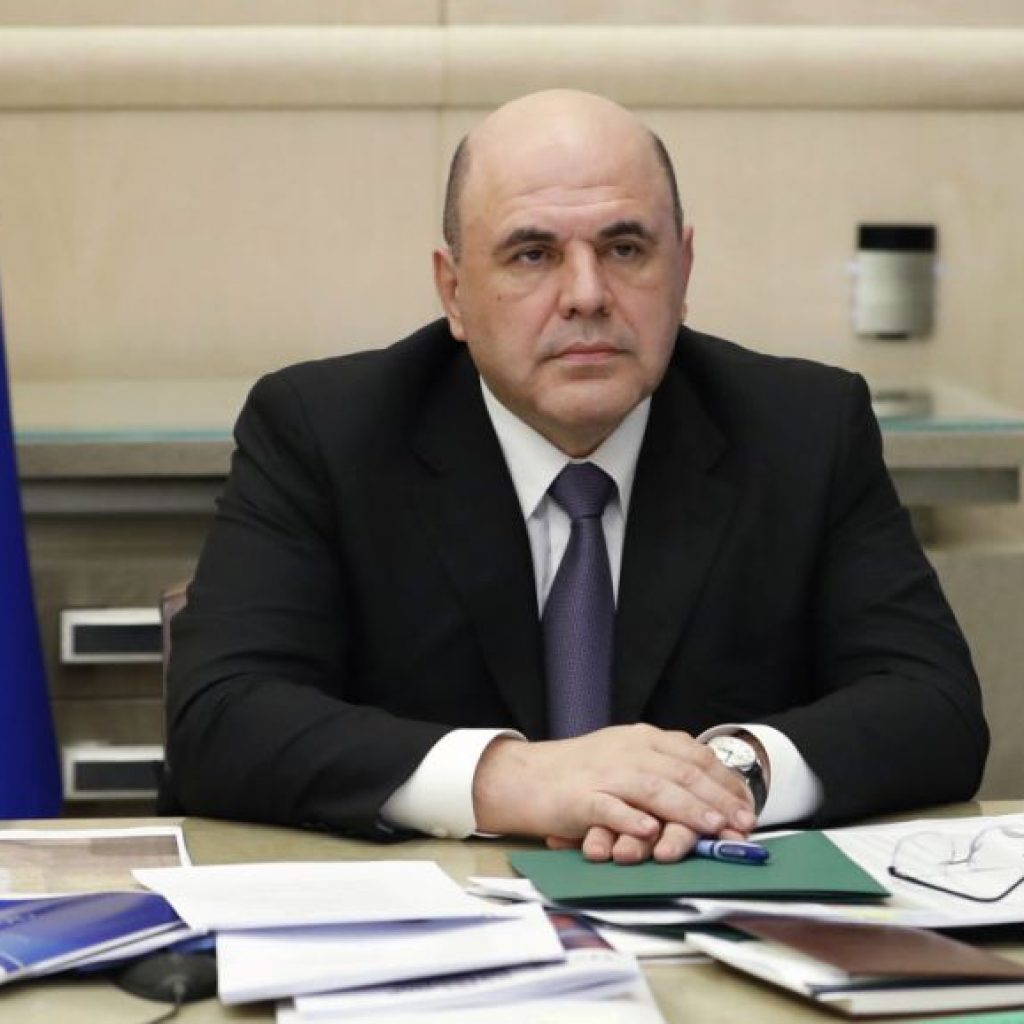RA’s Daily Russia News Blast – April 30, 2020

Today in Russia: PM Mishustin tests positive for COVID-19; Hospitals and front-line staff hit hard; Russian medical students forced to front lines; Russia opposes US low-yield nukes; Putin “oddly passive, even bored”; Potanin “showing strength and leadership”; Turkey pivoting from Russia to US?; 4 in 5 young people are apolitical; Gazprom estimates huge revenue fall; IEA predicts global energy consumption will reach 70-year low; Ukraine still far from agreeing to “all for all” prisoner swap with Russia
Russian Prime Minister Mikhail Mishustin has tested positive for the coronavirus. He reported that he has a high temperature [in Russian] and a decree was signed [in Russian] transferring power temporarily to First Deputy Prime Minister Andrey Belousov while Mushustin self-isolates and recovers from the virus.
Doctors, nurses, and other front-line staff are especially hard-hit by COVID-19 in Russia. Of the 284 “hotspots” identified in the country, 64 percent of them are hospitals. CNN wrote, “For weeks, Russian independent media and non-governmental organizations have reported anonymous pleas from outraged medical workers who said they had been ordered to the frontlines of a public health crisis without adequate protection, and that bureaucratic foot-dragging was costing lives. As the situation worsens, many have become more outspoken, sometimes risking legal action against them.”
Future nurses and doctors still studying are being heavily pressured to join the front lines against COVID-19. Moscow Times wrote, “In a joint order signed Monday, Russia’s health and education ministries instructed universities to deploy third year or higher general practice, pediatrics, preventative medicine and dentistry students, as well as nurses who have completed two years of study, to coronavirus hospitals for ‘practical training.‘”
Russian billionaire Vladimir Potanin is showing “strength and leadership” during the COVID-19 crisis. Potanin has continued to pay in full employees working from home and is providing bonuses to essential workers. Potanin has also supported community initiatives such as food and medicine deliveries and donating hundreds of millions of dollars. But Forbes writes that Potanin is careful not to tread into political territory even as President Vladmir Putin grapples with the challenges of the coronavirus, adding,
Potanin will again be sure not to use his financial and industrial might to leverage political power, despite having been deputy prime minister for six months in 1996…The oligarch is well known alongside Mikhail Fridman as being one of two oligarchs to better navigate the change from President Boris Yeltsin to Putin and the industrial upheaval to follow.
President Putin has been “oddly passive” during the coronavirus outbreak. The New York Times wrote, “Now, having bowed to the inevitable and canceled the [9th of May Victory Day] parade, Mr. Putin seems less a can-do executive than a bored monarch cooped up in a palace, checking his watch during televised video conferences with his underlings about the pandemic as his popularity ratings dip.”
Turkey may be shifting away from Russia and towards the United States as disillusionment with the former grows. Turkey has donated COVID-19 testing kits and other medical equipment to the United States, President Recep Tayyip Erdogan signed a special exemption to provide ventilator parts to US manufacturers, and earlier this month announced a suspension of the activation of the controversial Russian S-400 missile defense system. The Turkish President wrote recently that, “Recent developments in our region, particularly in Syria and Libya, have once again demonstrated the importance of upholding the Turkish-US alliance.” At the same time, Russia and Turkey are not seeing eye-to-eye in Syria or in Libya, where the two countries find themselves supporting opposing governments.
Russia has blasted a US State Department document advocating fitting “low-yield nuclear warheads to submarine-launched ballistic missiles would help counter potential new threats from Russia and China,” arguing that such a move “reduces the risk of nuclear war by reinforcing extended deterrence and assurance.” Foreign Ministry Spokeswoman Maria Zakharova said such a move would be viewed as an act of aggression and that, “Those who like to theorize about the flexibility of American nuclear potential must understand that in line with the Russian military doctrine such actions are seen as warranting retaliatory use of nuclear weapons by Russia.”
4 in 5 young people are apolitical, according to a survey published by Russian business outlet Vedomosti [in Russian].
Gazprom estimates a large drop in revenue do to the coronavirus. The gas giant predicted a 16.4 percent drop in gas exports, and a 37 percent fall in average prices. The company’s export earnings may be slashed by up to half as a result, RBC reported [in Russian].
The International Energy Agency has published a report on global energy demand warning that energy consumption may drop by 6 percent globally to a 70-year low, a decline seven times greater [in Russian] than after the 2008 financial crisis. Oil, coal, and gas demand would be hit particularly hard.
Ukraine’s Foreign Minister Dmytro Kuleba said Thursday that it is still far from reaching an “all-for-all” prisoner swap agreement. Kuleba added,“Of course, we are still far from implementing the formula ‘all for all’ and should move forward. Russia and Ukraine have to continue its cooperation.”
PHOTO: Russian Prime Minister Mikhail Mishustin is seen on a videoconference on April 28. He announced Thursday that he has tested positive for COVID-19 and will temporarily hand over his duties to the First Deputy Prime Minister (Dmitry Astakhov/TASS).











